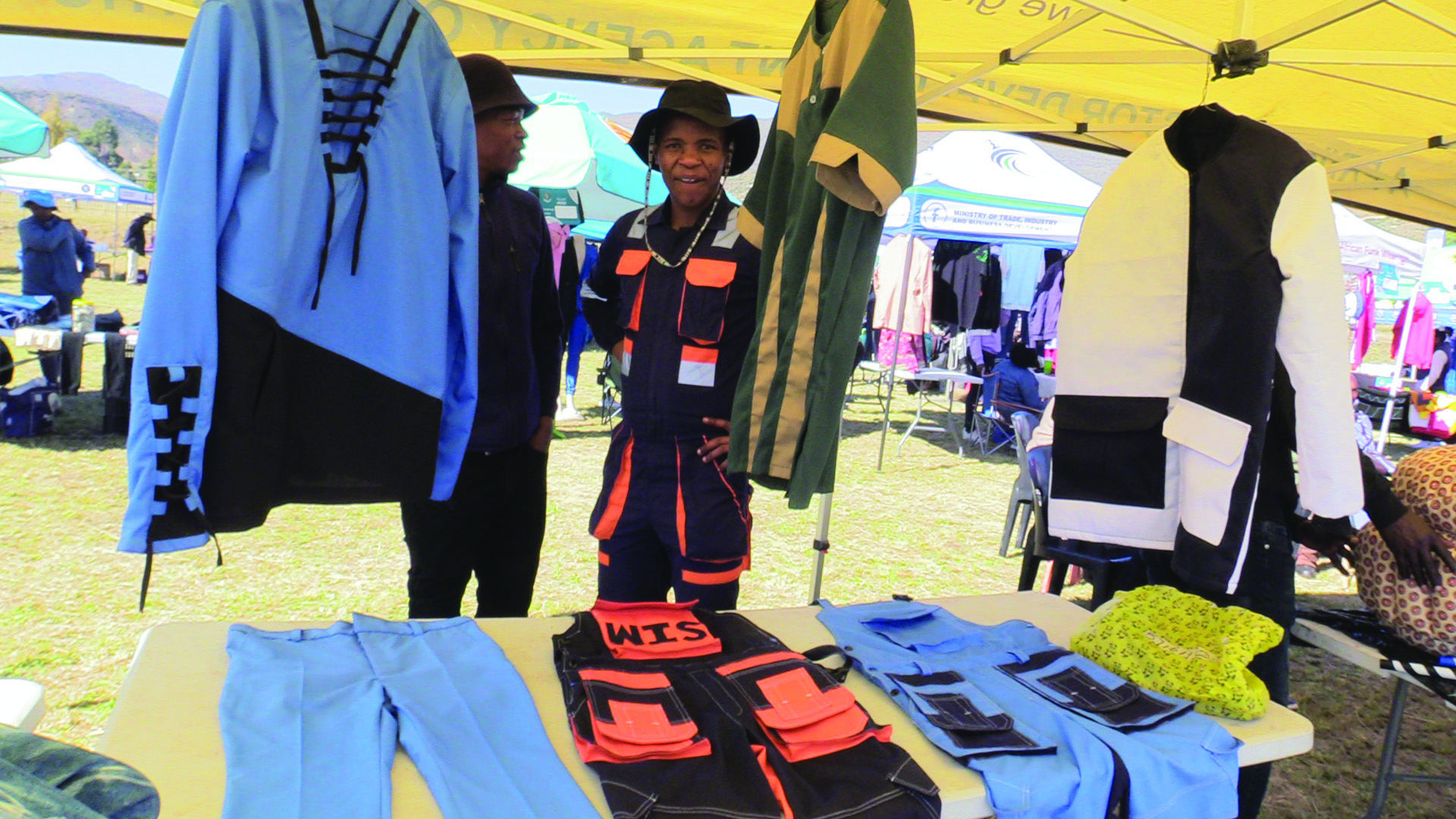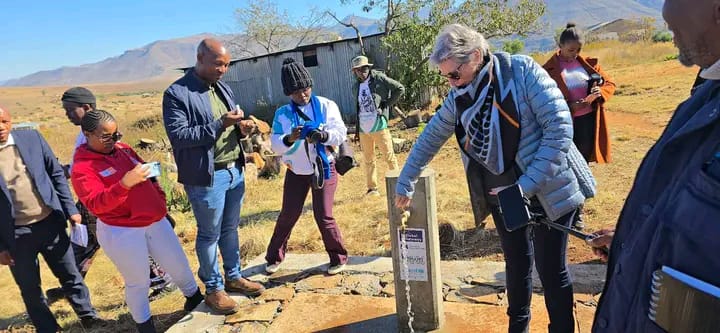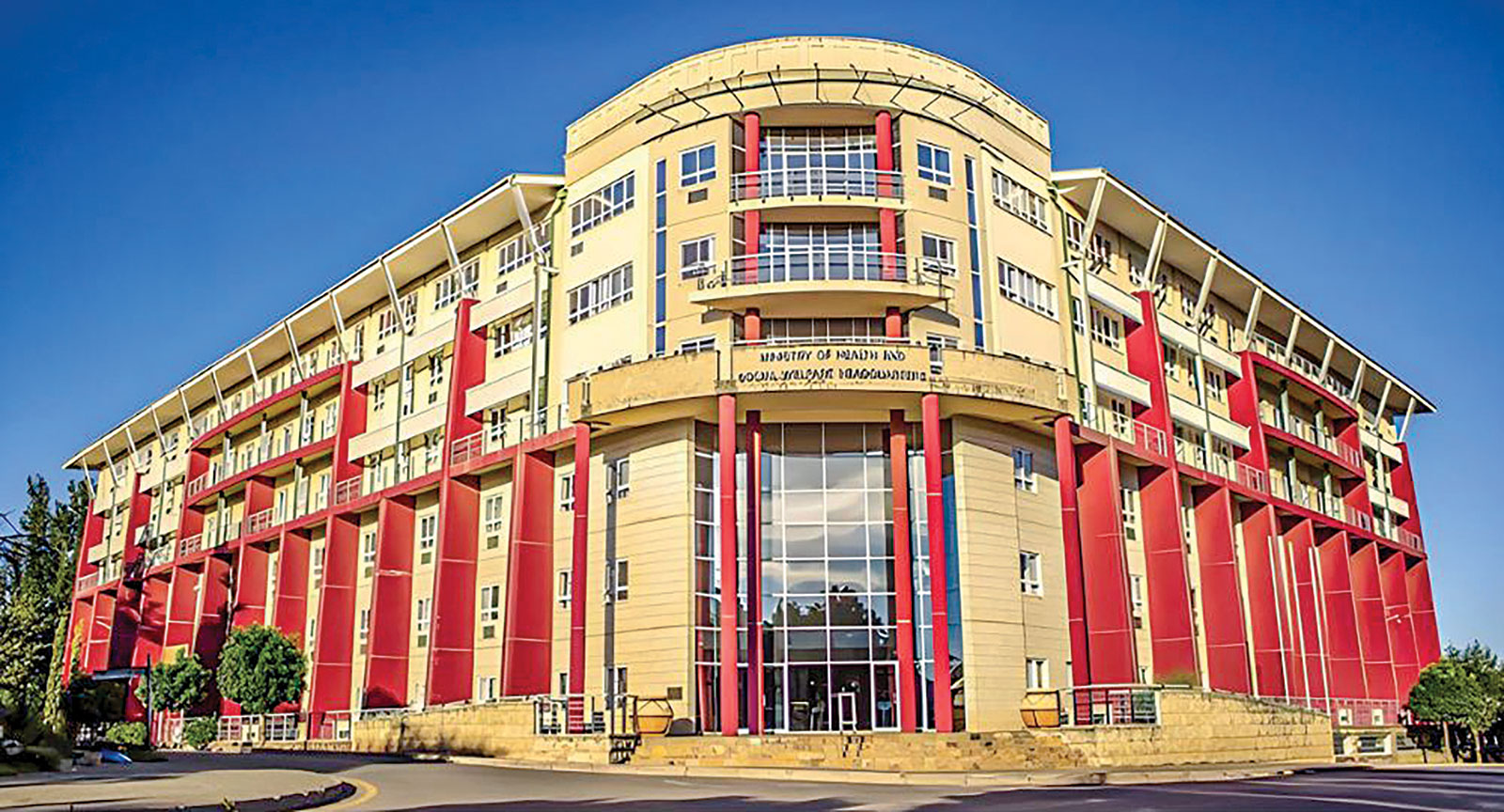Nutrition clubs lead charge for sustainable agriculture

SHARE THIS PAGE!
Nutrition clubs are leading community efforts to encourage sustainable practices as part of their ongoing campaign to improve nutrition and food security, even in the face of Lesotho’s challenging geography, climate, and economic landscape.
In this interview with theReporter’s ‘Mantšali Phakoana, an agricultural assistant in the Ministry of Agriculture, Food Security and Nutrition, Palesa Mokheseng, shares her insights on sustainable agriculture and nutrition in Lesotho.
Mokheseng was one of the primary organisers of a recent nutrition exhibition held in Sehlabeng sa Thuathe. Her involvement with both the ministry and community initiatives positions her as a key player in the movement to improve food security and nutrition throughout the country.
What inspired you to host the recent nutrition show?
The Lekhalong nutrition club comprising Matebeleng, Ikopanyeng Sehlaba, Ithuteng Baruting and Classic clubs organised a food and nutrition exhibition last week to raise awareness about the importance of nutrition. We have realised that many families in urban areas struggle to eat healthy due to busy schedules, leading to malnutrition.
Our nutrition clubs organised this exhibition to showcase local, healthy food options and highlight our existing clubs, where people can learn about sustainable farming methods, hand work and nutrition. We also encourage increased food production to improve health and support our country’s economy.
The primary goal of nutrition clubs is not only to grow nutritious crops such as vegetables and grains for consumption by the local community, but also to cultivate these foodstuffs for sale. Profits generated from these sales are then reinvested into the club, allowing for the purchase of meals that are prepared and provided to vulnerable children, ensuring that they have access to healthy, balanced diets.
The show was a community effort, supported by local farmers, Member of Parliament for Sehlabeng sa Thuathe and community councillors. The exhibition’s success is a reflection of the community’s dedication to addressing nutrition challenges and promoting healthy lifestyles.
What are some of the most pressing nutrition-related challenges that Lesotho faces?
One major challenge hindering nutrition in Lesotho is the common misconception that buying food equates to a nutritious diet, whether for families in urban areas or those in rural communities.
Many assume that eating processed foods like instant noodles or yoghurt is a sign of living a healthy life, while the reality is that nutritious diet should consist of a variety of whole foods to provide the essential vitamins and minerals that our bodies need.
Based on your knowledge and experience, how do you think the local government and communities can work together to improve nutritional health in Lesotho?
Local government and communities can work together to improve nutritional health by building on existing collaboration between the ministries of agriculture and nutrition, health and education from pre-school level. By combining efforts, we can ensure consistent messaging and promote nutrition as a shared priority for both policymakers and community members. This cooperation will help to ensure that healthy eating habits are integrated into Lesotho’s school curricula, food production practices, and community life.
Nutrition is critical at every stage of life, from conception to adulthood. It is therefore, imperative for Basotho to comprehend the importance of nutrition in maintaining good health.
The ministries of agriculture, health and education have made significant efforts to emphasise this message. Yet, it is our responsibility to embrace this information and adopt healthy eating habits in order to avoid diseases linked to poor nutrition.
How does the cultural context of Lesotho influence people’s food choices and eating habits?
Basotho cultural traditions also impact food choices and eating habits. For instance, some cultures discourage mothers from breastfeeding immediately after childbirth, despite research indicating the numerous benefits of colostrum for infant nutrition.
This is one example of how cultural practices can hinder optimal nutrition. Therefore, it is important to examine and balance cultural traditions with scientifically-proven nutritional guidelines in order to ensure healthy and sustainable diets.
What are some misconceptions or myths about nutrition that you encountered during the show?
Many Basotho hold a myth that eating meat from a cow slaughtered by a certain person can cause diarrhea because it reflects the individual’s personal hygiene. However, this is untrue and rather a result of poor sanitation during the slaughtering process. Additionally, climate change poses threats to food security and agriculture, ultimately affecting nutrition.
To combat these issues, we must work towards dispelling misinformation about nutrition and hygiene, emphasise the importance of clean food preparation methods, and strive to address the impacts of climate change on agriculture. This comprehensive approach will help to ensure the nutritional well-being of our communities.
How does the prevalence of poverty in Lesotho affect the quality and quantity of food that people have access to?
Contrary to popular belief, poverty alone does not dictate nutritional status. We, as Basotho, possess the potential to cultivate sustainable food sources that can provide year-round nutrition through the use of seasonal planting techniques, crop preservation methods and agricultural training.
Are there any traditional Lesotho foods that you think deserve more attention for their nutritional value?
We strongly encourage a return to traditional foods. Our traditional foods are not only nutritionally balanced and rich with vitamins and minerals, but they also provide a vital cultural connection to the past.
In emphasising the return to these traditional foods, we can promote healthy lifestyles and celebrate our cultural heritage. Therefore, we strongly encourage a return to traditional foods.
How can Lesotho harness its agricultural potential to improve nutrition?
Lesotho’s agricultural potential is a vital resource that can be harnessed to enhance nutrition for its citizens. By implementing practices such as using high-yield and nutrient-dense seed varieties, diversifying crops and livestock and practicing crop rotation, farmers can increase their yields, improve crop nutrient quality and protect their soil’s fertility. These measures would help to ensure a more diverse and nutritious food supply, ultimately supporting better health for the people of Lesotho.
What impact do you think the geography and climate change of Lesotho have on food production and availability?
Climate change has added another layer of complexity to Lesotho’s food production and availability challenges. Rising temperatures and increasing variability in rainfall patterns can lead to droughts, floods and other extreme weather events that damage crops, reduce yields and disrupt food production. The high altitude and temperature climate can prevent both opportunities and challenge for farming.
Given the erratic nature of weather patterns in our country, we also advise farmers to diversify their crops and practice crop canning. By growing a variety of crops and preserving the harvest, farmers can help offset potential crop losses due to climate change. Moreover, crop canning ensures that the community has a reliable food source for the future, even when weather conditions are unfavourable for fresh crops.

KKMJV workers resume tunnel operations
4 days ago
SACU calls for review of US tariffs
4 days ago

RSL promotes collaboration
5 days ago

M26m corruption: PAC chair out on bail
8 days ago
HIV services on brink of collapse
9 days ago

